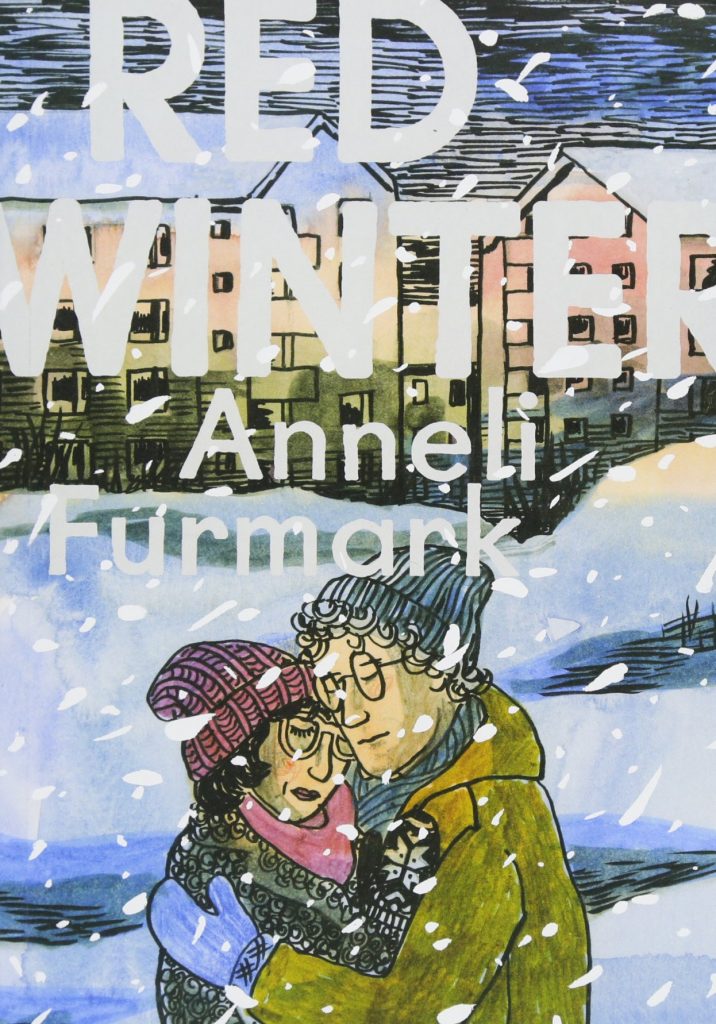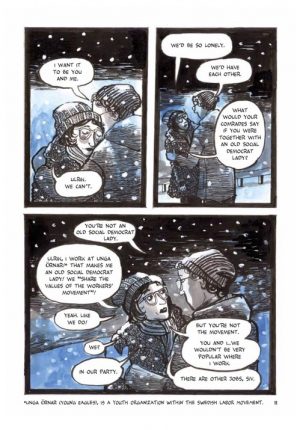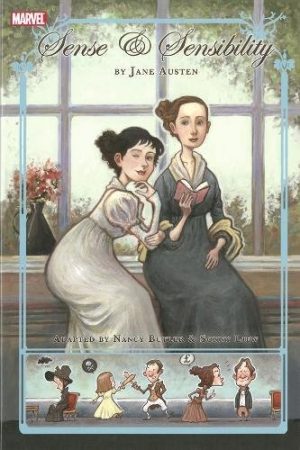Review by Frank Plowright
Humane and intelligent, Red Winter is a gradual unravelling of several lives in 1970s Sweden, although were it not for the back cover blurb mentioning the period, there would be little to give it away. Perhaps there are more visual clues for the original Swedish readers.
Anneli Furmark titles her chapters after the names of the characters followed, opening with Siv, with whom most of the cast have some connection. Nearing forty, she’s married with three children, but no longer happy with her relationship and is carrying on with young Socialist activist Ulrik. Ulrik is conflicted, having rejected one form of indoctrination for another, yet his views are not fully formed. Furmark’s character revelation is subtle. She doesn’t spell everything out, but enables readers to piece things together from passing conversations, some of which are left hanging.
While the art isn’t conventionally pretty, it’s strong on character, and exceptional in expressing the drabness of a Northern Swedish town during winter, when daylight hours are few and snow is a perpetual companion. Limited watercolour shades of blue, orange, and occasional red both illuminate and reinforce the darkness. At times the storytelling is unrefined, with an awkward section right at the start during a conversation between Siv and Ulrik that could be more efficiently broken down. It’s perhaps intended that static viewpoints reinforce static lives, as the lack of imagination applied to layouts generally occurs when Siv and Ulrik are together.
As Furmark tours the cast each of them slightly informs others, and we learn the secrets they keep, some ordinary and others hurtful or life-affecting. Political views are integral to Red Winter, and Furmark has a sardonic take on the tendency of the left wing to factionalise over the slightest differences. A good scene near the end highlights the stupidity of rigidity in an ever-changing world, although Furmark never resorts to ridiculing her cast. They are who they are, misguided, dogmatic or someone we’d happily share a drink with.
Red Winter’s charms don’t strike immediately, but there’s a fair chance after reading that you’ll find yourself wondering how life played out for the cast, or indeed whether it’s a more personal statement.





